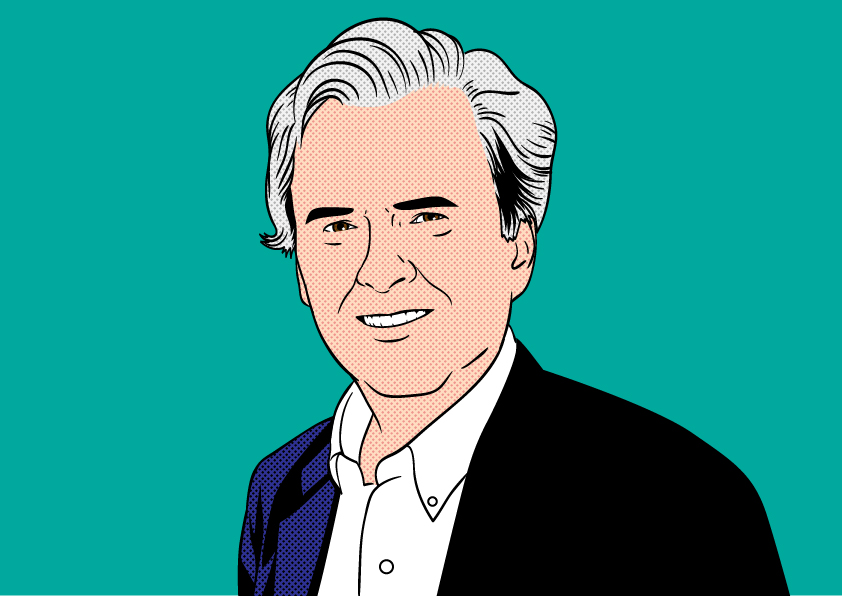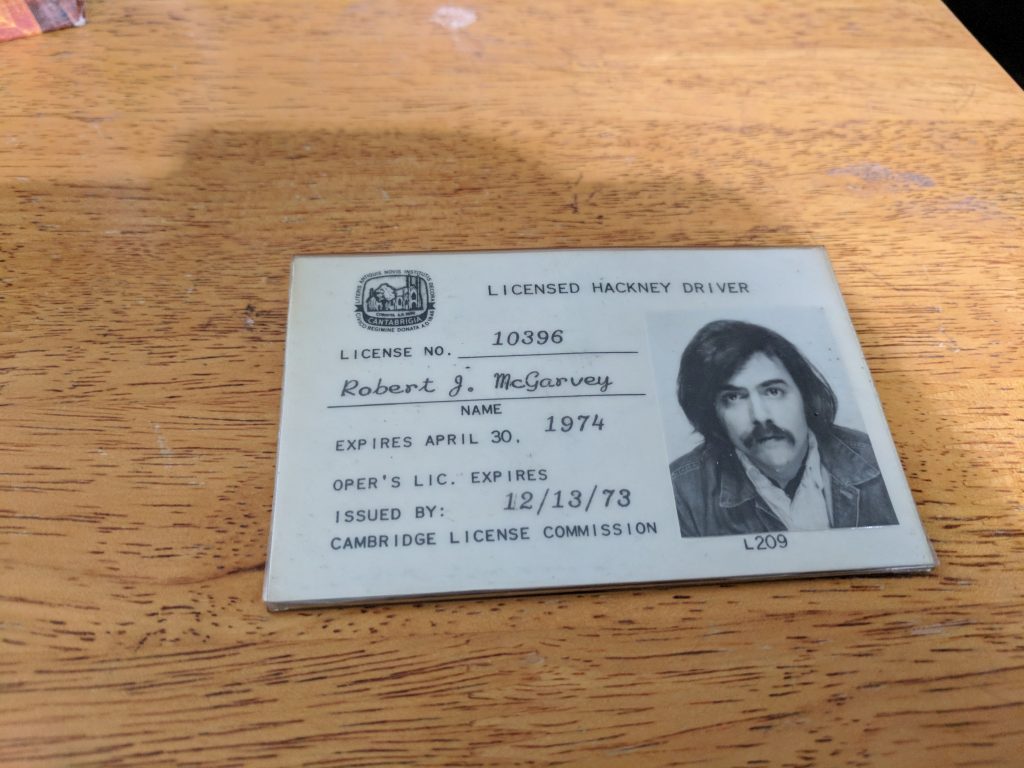The Future of Airport Rides May Be Decided In Phoenix

By Robert McGarvey
The Phoenix City Council just blinked – which means that Uber and Lyft which had threatened to pull out of Sky Harbor Airport, the 13th busiest airport in the US, will continue to drive passengers to the airport and away from it. They had said January 31st was there last day at PHX. But they are staying. For now.
Trust me, this is just the beginning of the story. We are nowhere near the end and there’s no reason to rush because the ending is likely to be unhappy. And what happens in Phoenix may well shape what happens in airports around the country as cities desperately seek new ways to balance their airport budgets. Historically, cities have dinged taxi companies with airport fees and that worked well – until suddenly the taxi businesses collapsed as Uber and Lyft rose.
Which has cities like Phoenix scrambling for new ideas.
Like a hefty fee on Uber and Lyft rides.
Which did not sit well with the ridesharing companies because, remember, they have their eyes on lots of towns. Not just Phoenix.
So when the city came up with its big new fee — $4 on ever trip, in or out of the airport, by a ridesharing company – the ridesharing companies vowed to pull out.
Those new Phoenix fees seemed a quick way for Phoenix to secure its airport transportation cashflow which, right now, teeters on the edge of collapse. Per Phoenix New Times, “Currently, airport officials say, taxis and ride-share companies are only covering about $9 million of the $26 million needed to maintain and operate Sky Harbor’s ground transportation system.”
What stopped those new fees is that the Arizona Attorney General Mark Brnovich filed suit and, after the city talked with the Arizona Supreme Court, it opted to delay implementation of the fees pending the court’s ruling on the constitutionality of the fees.
Brnovich claims the fees are unconstitutional. “I think it maybe dawned on the mayor and other Council folks that this is really serious, and it was not only an unconstitutional tax, it was dumb,” Brnovich told KTAR FM’s Arizona’s Morning News.
He pointed to Proposition 126, passed by Arizona voters in 2018, that banned new taxes on services as prohibiting the ridesharing fees which he said amounted to a new tax.
The back story is that taxi traffic at the airport plummeted 42% between 2015 and 2018. Taxi companies, by the way, would pay $1.75 per fare under the new rules. Why so much less? Because they contribute less to traffic congestion at the airport, per the city, they can’t pass those fees onto consumers, and they operate under extensive regulation, says the city.
Uber and Lyft account for 80% of the commercial traffic at Sky Harbor – which put a bullseye on the services. The city did offer a discounted, $2.80 fee for rides that begin and end at the Sky Train depot rather than at the terminals. But most rides would incur the $4 fee.
Is that anti-consumer? Maybe, maybe not. That’s because taxi fares generally are higher for consumers – although the Uber and Lyft surge pricing can raise those prices higher. But much of the time taxi fares are dearer than fares with Uber or Lyft.
Nonetheless, Uber and Lyft said no way to to the proposed fees. Uber explained why it would exit Phonix before paying them: “Our riders and drivers should not be treated as a piggybank to fill the Airport’s budget holes. This fee unfairly penalizes those who rely on ridesharing to get to or from PHX by asking them to bear a disproportionate share of costs associated with the Sky Train. On behalf of the riders and drivers who rely on Uber, we cannot accept a partnership that unfairly burdens our shared passengers.”
Basically, Uber and Lyft decided to play chicken with Phoenix and Phoenix – because of Prop 126 – blinked.
For now.
What happens next? My guess is that the Brnovich position will prevail, that the AZ Supreme Court will tell the city it cannot impose the fees on ridesharing companies as it had proposed.
But the City Council will come up with a different way to extract money from passengers of ridesharing companies. Probably they will make it stick because the airport needs the money and ridesharing ventures are a well heeled target.
Very probably, if Phoenix prevails airports around the country will hungrily explore ways to grab more income out of every rideshare. Pretty much all of them have seen taxi revenues shrinking and – in their minds – the logical place to make up the difference is whacking the rideshare companies and their passengers.
Where do I stand? Personally I don’t take Uber to the airport. I ride the light rail which stops in front of my apartment and costs $1. It’s about as fast and it lets me off at the Sky Train station.
Family members however often use Uber to Sky Harbor and sometimes I pay, using a $15/month credit for Uber that Amex gives to Platinum Card holders. The fare ranges from $8 to $12, plus tip (generally $2).
Add a $4 fee to those fares and it’s a 50% or 33% increase.
Presently there are no fees on drop offs. The fee on a pick up is $2.66.
Sure losers in this brawl, no matter how it shakes out, are the drivers. I don’t see a brightening future for taxi drivers – many of whom already have shifted to driving for Uber or Lyft. Why? Driving a taxi is hard, low paying work, a reality documented in a Boston Globe three-part Spotlight report from 2013. I drove a taxi in Boston and Cambridge in 1970-73 and it was just as bad then. Nothing has changed apparently, and that is why some drivers who have access to a vehicle that would be acceptable to Uber or Lyft prefer that route. The pay maybe is no better for an Uber driver but very probably the working conditions are a bit better.

Make no mistake, rideshare drivers earn low wages and drivers have very little ability to pressure the companies who listen to investors, not workers. It is a grim outlook.
But the other losers in the deal will be the passengers who use rideshare or taxis to get to the airport. Fares and fees will go up. That seems inevitable. If there’s a single, loud, unavoidable message in this it’s that the cost of getting to the airport in a car is going up. Maybe by a lot.
That will be true in Phoenix and probably in many other cities around the country as anti car sentiments rise, anger at congestion increases, and politicians decide to stick it to people who ride in cars, maybe especially to airports.
That’s my guess about the ending to this story.
We can hope I am wrong.
I won’t wade into the politics and legalities — that’s for the lawyers and politicians (both of whom we have an oversupply).
I agree there may be some unfairness, but let’s remember that Uber and Lyft are still basically taxi services, with a more sophisticated operating model. But compared to taxis (and limos), they’re relatively unregulated.
Do they pay the $200 annual fee (per vehicle) to serve PHX? Have the same insurance requirements? Have to present medical cards and defensive driving certificates? Have their rates capped by ordinance?
All this is (and more) is contained in Phoenix R&R for taxis:
http://www.skyharbor.com/docs/default-source/pdfs/rules-and-regulations/rr_04-01-taxi-limo-service.pdf
No, I don’t work (or shill) for the taxis; in fact, my family sometimes uses Uber and Lyft. And taxis, too. I Just think everyone needs to be fully informed before weighing in on this battle.
I hope they can finally agree on a solution that’s a win-win-win (for PHX, for Uber/Lyft and for The People).
It is no surprise to me that the taxi business at Phoenix is still out of control. I flew into there just once — in 1984 — and, for the first time in my life, was confronted by gypsy cab drivers — five of them — before I could even exit the airport. I eventually made it outside, after having to wrest my baggage from the hands of one gypsy cab driver, and found a properly licensed driver.
In my close to fifty years on the road I suffered horrible hotels, rancid restaurants, crappy convention centers and tiranical tax collectors. In fact, I’ve seen enough fees, surcharges, levies and special assesments to go around the planet umpteen times. Yet, governments never seem to care how many times they pick our pockets. They always assume we’ll take it. Now along comes a “new” way to get transported and they argue that they’re immune to the costs of their customers destination. It kind of makes sense. You don’t expect to be charges a fee to drop a customer off at a local business, restaurant or Dr.s office. So goes the logic. Why charge ME for dropping you off at an airport? Seems to make sense, except, airports have been sucking at the public tit so long they’ve become special. And they have dozens of self important local officials wrapped around their pinkies to prove it. Everyone pays. It doesn’t matter what you want to do at an airport, you gotta pay, and pay and Pay.
It’s only fair, right? Cabbies pay, busses pay, trains pay so who are you to buck the system? And if you try, you can expect us to bring all the demons of hell onto your a$$, or where ever you keep your wallet.
No matter who you are, you WILL pay the man…